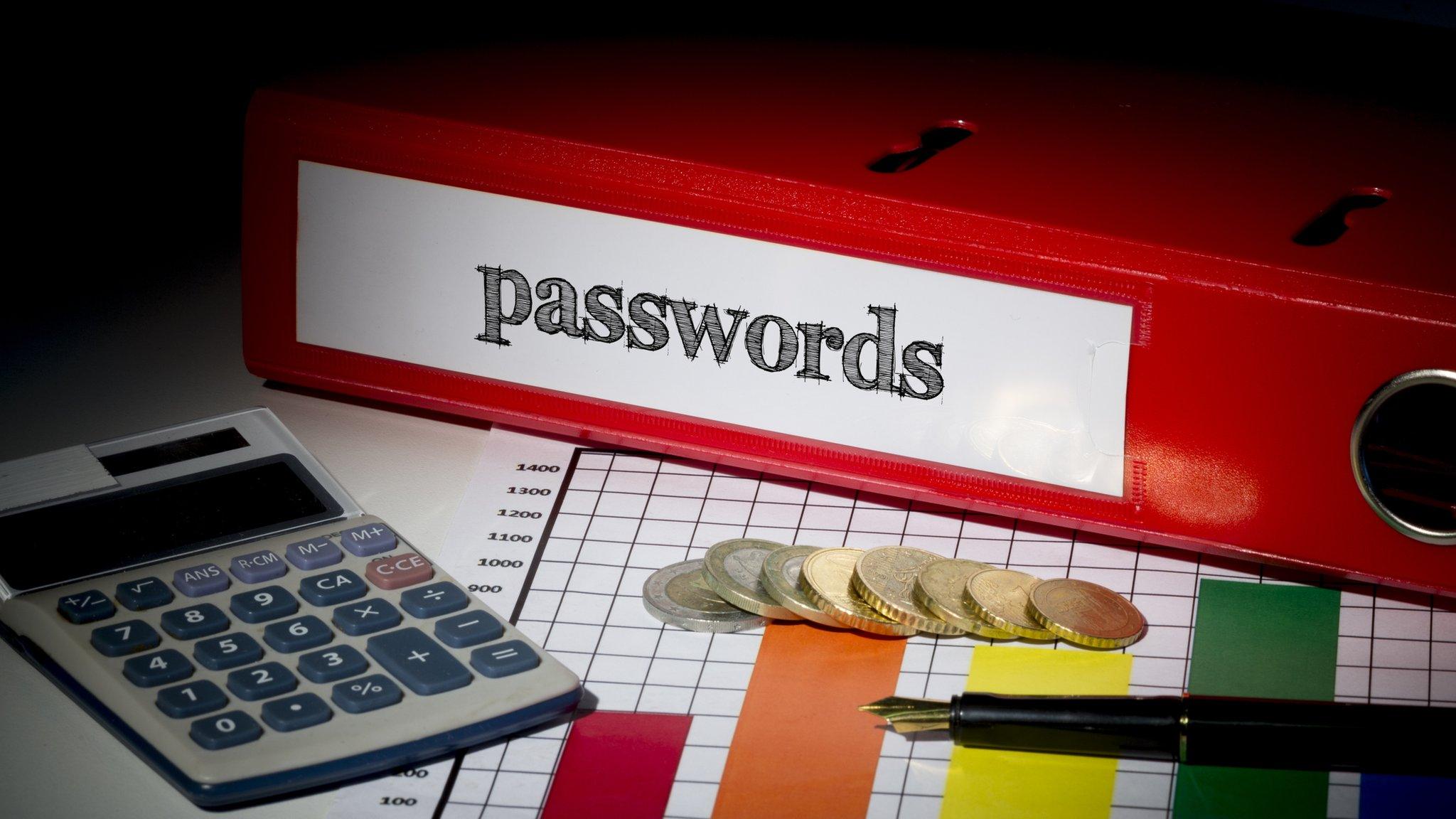Yahoo hack: Should I panic?
- Published

Yahoo has said personal data belonging to one billion users was hacked
Yahoo has said data from more than one billion accounts may have been hacked.
But should you be worried - and what can you do to protect yourself in the future?
"Don't panic," security expert Graham Cluley told the BBC, although he does add that there are plenty of reasons to be concerned.
People might suppose the breach is unlikely to affect them because the attack happened three years ago and there was no widely reported abuse of the data in the meantime.
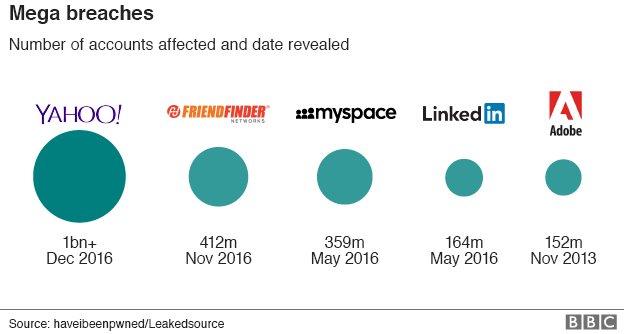
However, hackers might have targeted users' emails.
Yahoo has also said, external it is investigating a later, separate issue that might have made some accounts accessible without passwords.
"Your email account is the central hub of your entire online existence - if they own that they can ask for password resets on other accounts you have online as well," explains Mr Cluley.
Plus, anyone using their account for work purposes - such as sending professional documents back and forth in attachments - could in theory become a target of industrial espionage.
Even if accounts could only be accessed with passwords, the way they were encrypted is less secure than more modern techniques, according to Mr Cluley.
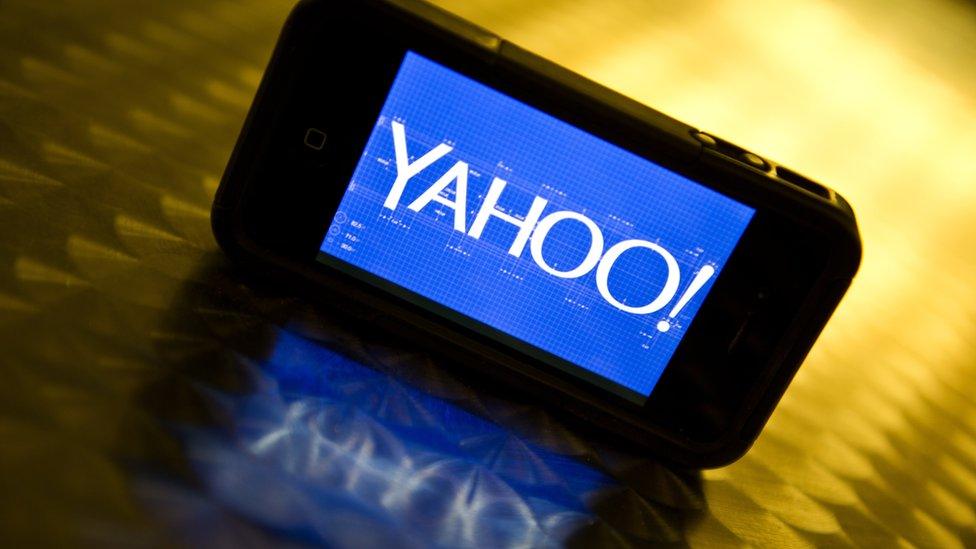
Don't just change your Yahoo password - make sure the passwords you use on other online accounts are all different
He adds that it is possible the data, including names, telephone numbers and dates of birth, will - or already has - become available to buyers on the dark net, although so far there has been no evidence of this.
Security expert and writer Brian Krebs said in a blog, "For years I have been urging friends and family to migrate off of Yahoo email, mainly because the company appeared to fall far behind its peers in blocking spam and other email-based attacks."
Yahoo has reassured its users:, external "We continuously enhance our safeguards and systems that detect and prevent unauthorised access to user account."
Some may not think of themselves as Yahoo users but the firm provides some BT and Sky customers' email accounts.
"We are urgently investigating this with them," BT said in an online statement, external, in which it also advised those who had a BT Yahoo email account in August 2013 to reset their password.
Sky said it was advising Sky.com email account users to change their passwords and security question answers.
It's also worth remembering that Yahoo acquired Flickr in 2005.
Yahoo has said, though, that accounts for Tumblr - which it also owns - would not have been affected.

What should you do?
"Don't just change your Yahoo password," says Mr Cluley.
That is the place to start, but once this password is changed, he also recommends changing your password on all other accounts you use and making sure that you use a different one for each.
Security question answers such as "what is your mother's maiden name?" should also be altered.
It sounds like a lot of bother, but security experts are increasingly recommending that people use a simple password manager program such as Password Chef, LastPass or 1password.
Two-factor authentication allows users to verify logging in via, for example, entering a separate code sent to their mobile phone.
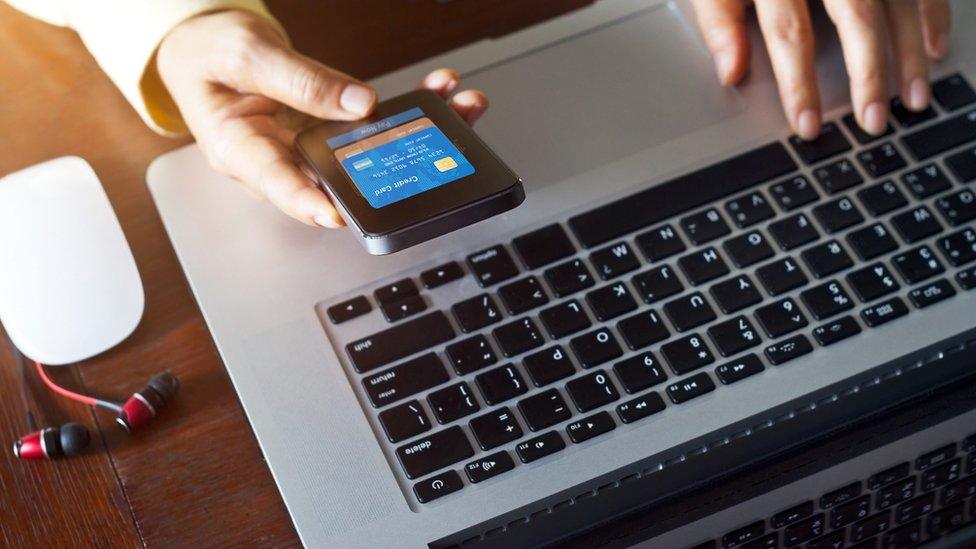
Some security savvy users only enter real personal information on websites where they have to - such as when making financial transactions
But the idea that online security stops with password management is outdated, says security expert Prof Alan Woodward at the University of Surrey.
"We're past that now," he says, adding that security professionals tend to enter fake information about themselves to online forms unless they can avoid it.
"I'm like the Queen, I have two birthdays - my online birthday and my real birthday," explains Prof Woodward.
"Do I give my real address? No - only for financial purposes like billing."
Yahoo accounts do allow users to see recent activity, external - for example, which computers were used to log in and where in the world they were located. Users can check this for any suspicious behaviour.
If users do want to move away from Yahoo after recent breaches, news site The Parallax recently wrote advice on how to do this., external
- Published15 December 2016
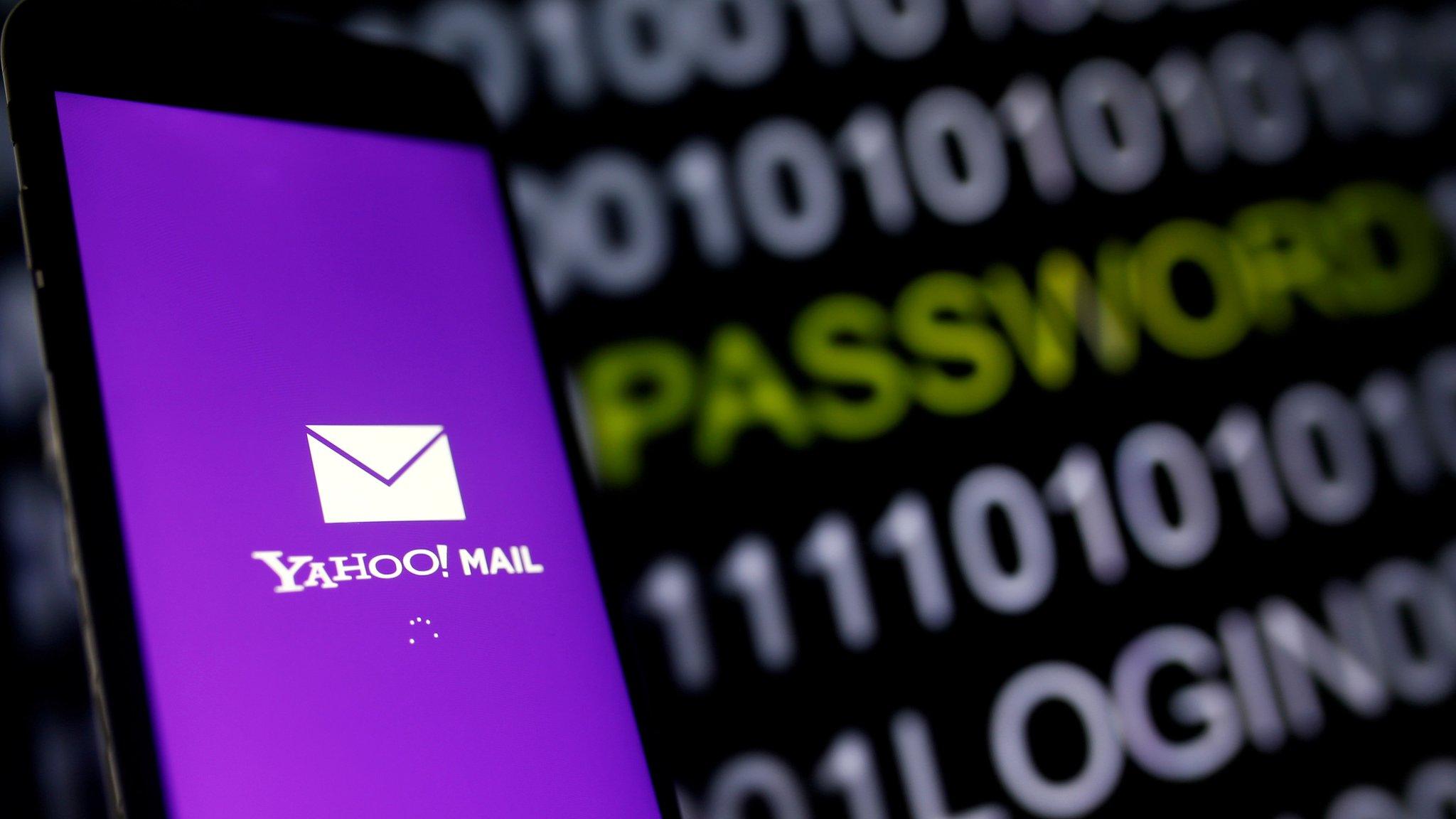
- Published15 December 2016
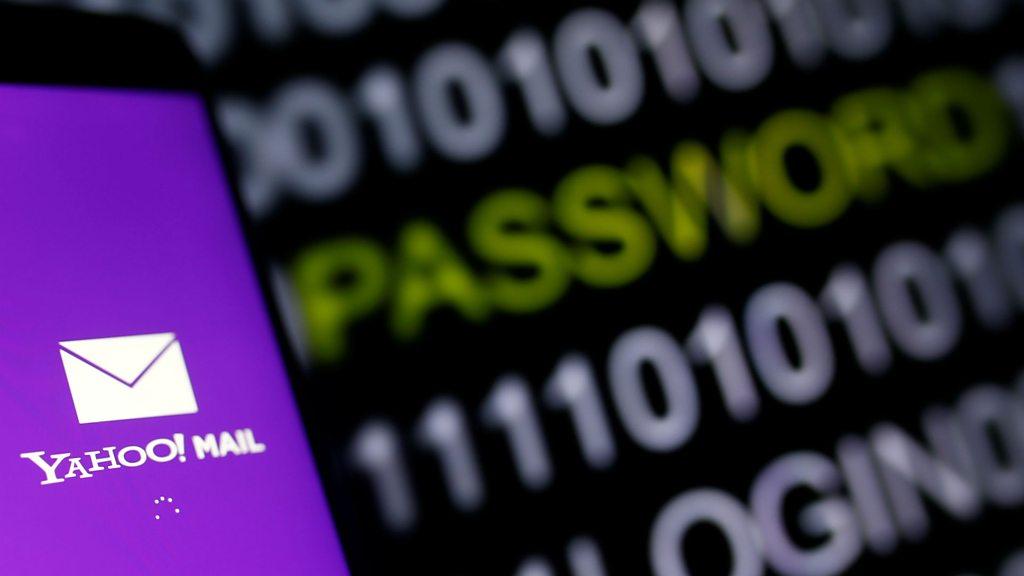
- Published10 November 2016
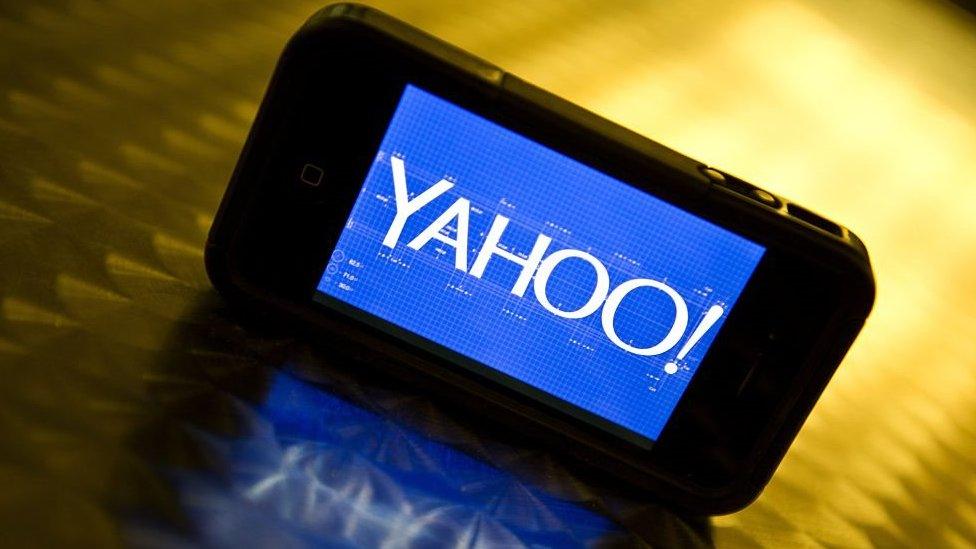
- Published11 September 2015
